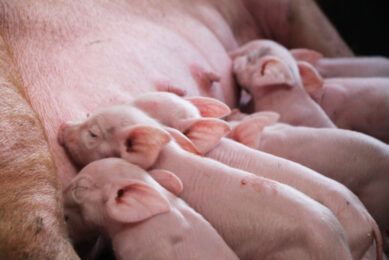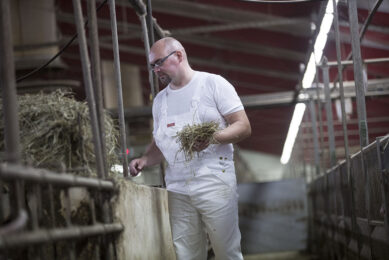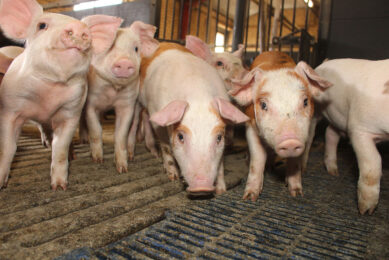Long pig transports to be studied more closely
Scientists from the Faculty of Agricultural Sciences at the University of Aarhus have set out to discover more about pig behaviour when the animals are being transported over long distances.
In the EU pigs may be transported for 24 hours at a time at the most, after which they must have a rest for at least 24 hours. According to the EU rules the 24-hour rule can be repeated ad infinitum. There is, however, no scientific proof that this model is the best one for the pigs – perhaps 12 hours or even 36 hours would be better.
Video monitoring
A group of behavioural and veterinary scientists will study pig behaviour during transport in several ways, among others using video monitoring of the pigs in the transport vehicle. The scientists can then see if the pigs spend their time sleeping, fighting, playing or something completely different.
Monitoring the pigs’ travel life is not just to satisfy the scientists’ curiosity. It can also contribute new knowledge that can be used to improve Danish and European legislation.
Rules
“There are many rules regarding transport of pigs and other animals, but the rules are not always based on concrete knowledge of the animals’ behaviour and welfare in the transport situation. This kind of knowledge practically doesn’t exist when it comes to very long pig transports,” says senior scientist Lise Dybkjær from the Department of Animal Health, Welfare and Nutrition at the Faculty of Agricultural Sciences, University of Aarhus.
She heads a project that has set out to investigate how the pigs fare during the long transports.
Registering
“We will investigate if the stays at the rest stations during the breaks are better for the pigs in terms of welfare than letting them rest in the truck. We will do that by registering the animals’ behaviour and by taking physiological measurements. We will also thoroughly document the animals’ conditions during the transports,” Dybkjær said.
The project, which is the first of its kind in Denmark, is a collaboration between the Faculty of Agricultural Sciences, the Danish Meat Association, and the SPF transport company, and is financed by the Pig Levy Fund.
Animal transports became a topical issue in Denmark last year as several transport companies were caught breaking the transport rules with negative effects for the animals in transit, resulting in pigs getting wounded or even killed.
Related websites:
• Department of Animal Health, University of Aarhus
• Danish Meat Association (DMA)
Subscribe here to the free Pig Progress newsletter











